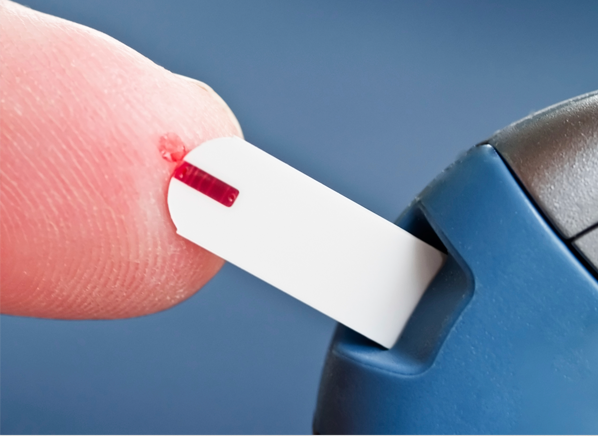
sugar control is at the focal point of any diabetes treatment plan. High glucose, or hyperglycemia, is a noteworthy concern, and can influence individuals with both sort 1 and type 2 diabetes . There are two primary sorts:
Fasting hyperglycemia. This is blood sugar that's higher than 130 mg/dL (milligrams per deciliter) after not eating or drinking for at least 8 hours.
Postprandial or after-meal hyperglycemia. This is blood sugar that's higher than 180 mg/dL 2 hours after you eat. People without diabetes rarely have blood sugar levels over 140 mg/dL after a meal, unless it’s really large.
Frequent or ongoing high blood sugar can cause damage to your nerves, blood vessels, and organs. It can also lead to other serious conditions. People with type 1 diabetes are prone to a build-up of acids in the blood called ketoacidosis.
In the event that you have type 2 diabetes or in case you're in danger for it, to a great degree high glucose can prompt a possibly savage condition in which your body can't process sugar. It's called hyperglycemic hyperosmolar nonketotic disorder (HHNS). You'll pee all the more frequently at first, and after that less regularly later on, however your pee may end up dull and you could get extremely got dried out.
Read more: on sugar
It's important to treat symptoms of high blood sugar right away to help prevent complications.
Continue Reading Below
Cystic Fibrosis: How It Affects Your Body
Possible causes in children and adults.
Causes
Your blood sugar may rise if you:
Skip or forget your insulin or oral glucose-lowering medicine
Eat too many grams of carbohydrates for the amount of insulin you took, or eat too many carbs in general
Have an infection
Are ill
Are under stress
Become inactive or exercise less than usual
Take part in strenuous physical activity, especially when your blood sugar levels are high and insulin levels are low
Symptoms
Early signs include:
Increased thirst
Headaches
Trouble concentrating
Blurred vision
Frequent peeing
Fatigue (weak, tired feeling)
Weight loss
Blood sugar more than 180 mg/dL
Ongoing high blood sugar may cause:
Vaginal and skin infections
Slow-healing cuts and sores
Worse vision
Nerve damage causing painful cold or insensitive feet, loss of hair on the lower extremities, or erectile dysfunction
Stomach and intestinal problems such as chronic constipation or diarrhea
Damage to your eyes, blood vessels, or kidneys
How Is It Treated?
If you have diabetes and notice any of the early signs of high blood sugar, test your blood sugar and call the doctor. He may ask you for the results of several readings. He could recommend the following changes:
Drink more water. H20 helps remove excess sugar from your blood through urine, and it helps you avoid dehydration.
Exercise more. Working out can help lower your blood sugar. But under certain conditions, it can make blood sugar go even higher. Ask your doctor what kind of exercise is right for you.
Caution: If you have type 1 diabetes and your blood sugar is high, you need to check your urine for ketones. When you have ketones, do NOT exercise. If you have type 2 diabetes and your blood sugar is high, you must also be sure that you have no ketones in your urine and that you are well-hydrated. Then your doctor might give you the OK to exercise with caution as long as you feel up to it.
Change your eating habits. You may need to meet with a dietitian to change the amount and types of foods you eat.
Switch medications. Your doctor may change the amount, timing, or type of diabetes medications you take. Don’t make changes without talking to him first.
If you have type 1 diabetes and your blood sugar is more than 250 mg/dL, your doctor may want you to test your urine or blood for ketones.
Call your doctor if your blood sugar is running higher than your treatment goals.
How to Prevent It
If you work to keep your blood sugar under control -- follow your meal plan, exercise program, and medicine schedule -- you shouldn’t have to worry about hyperglycemia. You can also:
Know your diet -- count the total amounts of carbs in each meal and snack.
Test your blood sugar regularly.
Tell your specialist on the off chance that you have rehashed anomalous sugar readings.
Wear restorative ID to tell individuals you have diabetes if there should be an occurrence of a crisis.

what you must know-high blood sugar treatment
![what you must know-high blood sugar treatment]() Reviewed by Sparly
on
November 18, 2018
Rating:
Reviewed by Sparly
on
November 18, 2018
Rating:
